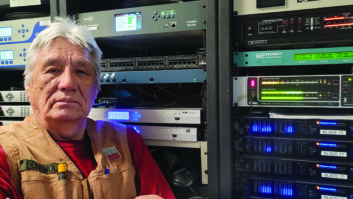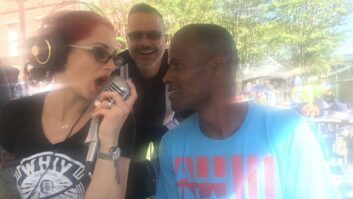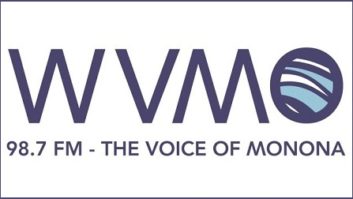Your long-time employer is downsizing and offers you a retirement package you can’t refuse. You take the deal, but now what do you do with your time?
This was the dilemma faced by Sue Gerber, who was 48 when AT&T nudged her out the door. She decided to spend part of her week volunteering for her community radio station, KRCL(FM), in Salt Lake City.
(click thumbnail)Sue GerberThat was in early 1999. After nine years of answering phones, helping with mailings, organizing public service announcements and anything else station management asked her to do, she received the Volunteer Year of the Award from the National Federation of Community Broadcasters, based in Atlanta.
“When I first started listening KRCL it was the ethnic programs like ‘Global Gumbo’ and the world music that hooked me,” she said. “They played every kind of music you can imagine except classical, which is heard on the NPR station in town. Before I found this station I listened to commercial radio, which didn’t play bad music, but I hated the loud commercials that assaulted me every two minutes. They just yell at you, and the worst commercials seem to be car dealers. I now listen to KRCL all the time unless I am playing my own CDs.”
Message from the left
At a small station like this one, volunteers are the lifeblood of the operation.
“I work on public service announcements, mail out thank you gifts and if I need to, record an underwriting message,” she said. “I’m not the type of person who says, ‘I’m above that.’ I do everything they ask me.”
In commercial radio, employees may sometimes think of their jobs as, well, jobs. Gerber sees her job as a mission.
“When we say ‘community,’ it isn’t just a slogan,” she said. “We reach out to everyone but especially the under-served, which is how the station began in 1979.
“It was started by Stephen Holbrook, a peace activist. Our station, known as ‘Radio Free Utah,’ still reflects a left-of-center political view, although not all the programmers are like that. Public affairs programs on the station are definitely progressive and include ‘RadioActive,’ a local call-in show.
“We talk about the war, lesbian-gay-bisexual-transgender issues, and we are particularly concerned with the threat of resumed nuclear testing. There are cancer victims around here that call themselves ‘downwinders,’ because they were downwind of the former Nevada testing grounds.”
Radio World asked Gerber what the term “Radio Free Utah” meant to her.
“Free to let progressive voices on the airwaves. Free to air local music, free to air music that is not considered commercially viable by the corporate media, such as folk, world, reggae, bluegrass and Native American music,” she said.
“Free to air the music of communities that don’t have a voice on corporate radio.”
Follow the money
In community radio, content is king and funding is always a challenge.
“Most of the programmers have their niche, their passion, their love,” said Gerber. “They know all about the artists in their particular musical genre, but they all have ‘real’ jobs outside the station, too.
“The Corporation for Public Broadcasting gives us some money, we have some underwriters and a few grants from local foundations. The bulk of the station’s funds come from listener support.”
The station raises cash with radiothons in the fall and the spring. Listeners can also pledge money at any time via the Web site. The station has an underwriting specialist, and a development director who works on preparing grant applications. Gerber has no other job outside of volunteering at the station. She works anywhere from eight hours a week to several days a week during radiothons.
KRCL has its own building in Salt Lake City with an air studio, two production rooms and a separate studio that is used for “RadioActive” and live musical performances.
The joy of volunteering
What is it about community radio that causes people to give so freely of their time and money?
“It is rewarding,” said Gerber. “We are a part of a like-minded community. The longer I stay, the more I see that needs to be done. In Salt Lake City, a lot of the high schools have programs where the kids have to volunteer for something, so there is a vibrant volunteer base here. I feel like I’m giving something back to the community, not just observing it from the outside.”
Gerber’s general manager at KRCL is Donna Land Maldonado, who not surprisingly speaks highly of Gerber.
“She is always reliable, and she is unusual because she is shy. She has no interest in being on the air. Sue comes in twice a week or more if we need her,” she said. “She is extremely cordial to everyone, easy to get along with and never asks for anything. We couldn’t ask for a better volunteer.”
The National Federation of Community Broadcasters, the organization that recognized Gerber, honors a community volunteer each year. The awards can go to people volunteering in operations, subscriptions, training, administration, engineering or programming. For details, visit www.nfcb.org. Listen to a live stream of KRCL or make a donation at www.krcl.org.
Sue Gerber seems to have found her niche.
“When I retired nine years ago I had no idea what I was going to do,” she said. “Now I know.”











